Photo essay: Rural women light up villages in Liberia
Date: 09 January 2017
Today, in post-civil war Liberia, less than 10 per cent of the population has access to electricity. While the country tries to rebuild its infrastructure, women solar engineers are pioneering efforts to provide affordable and clean energy by installing and managing solar lamps in their communities.
Rural Liberian women, trained as solar engineers over a six-month period by Barefoot College in India, with support from UN Women, are promoting renewable solar energy that reduces dependency on expensive and polluting fossil fuels, like kerosene. The solar lamps are lighting villages and communities, enabling longer work and study hours, and bringing greater security to many, especially at night time.
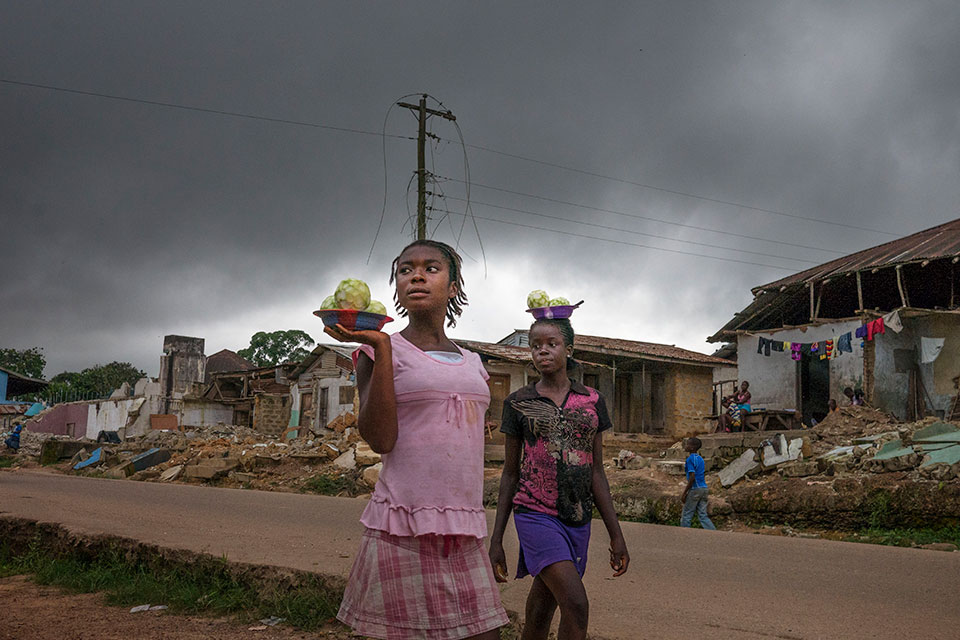
Infrastructure across Liberia, including electricity installations, was destroyed during the country’s protracted civil war (1989-2003). Above, girls in the town of Totota in Bong County walk past homes that are being demolished as the government rebuilds roadways.
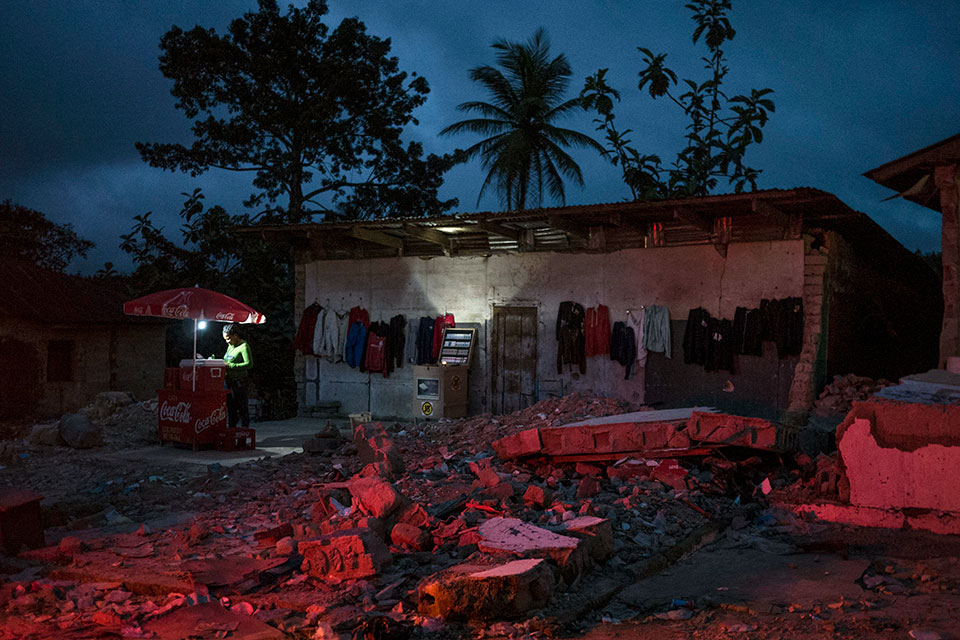
Totota once had access to the national power grid, but during the civil war, electrical cables were damaged and looted. Now battery-powered lamps are the main source of light for many vendors working after dark.
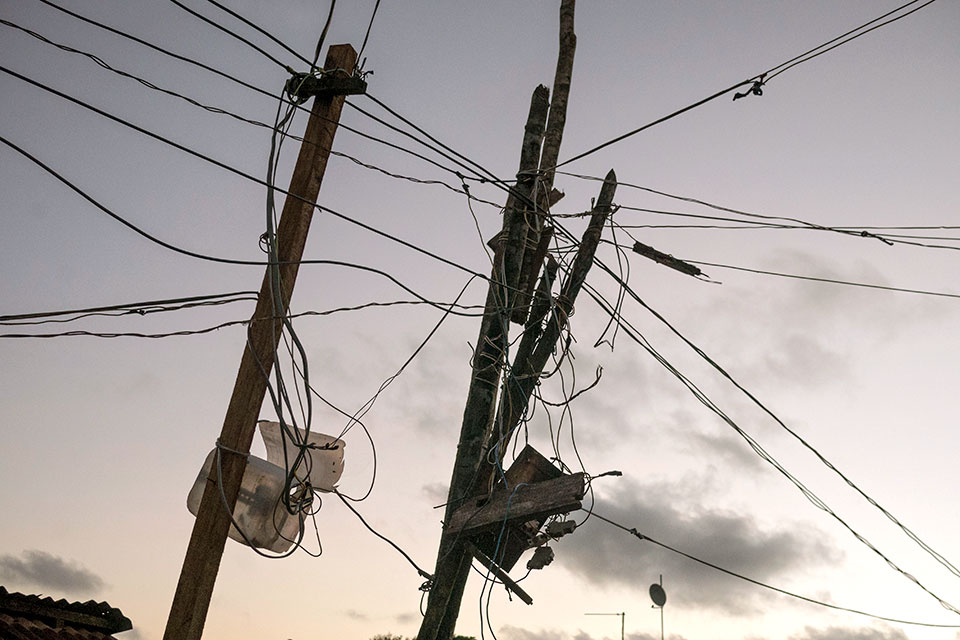
While Liberia works to rebuild its power grid, many communities rely on privately owned generators to access power for their homes. Cables, such as the one above, are connected to a private generator in Peace Island, Monrovia, locally known as "540" because most residents are former soldiers or members of armed groups who were paid $540 to lay down their weapons during a demilitarization campaign after the civil war.
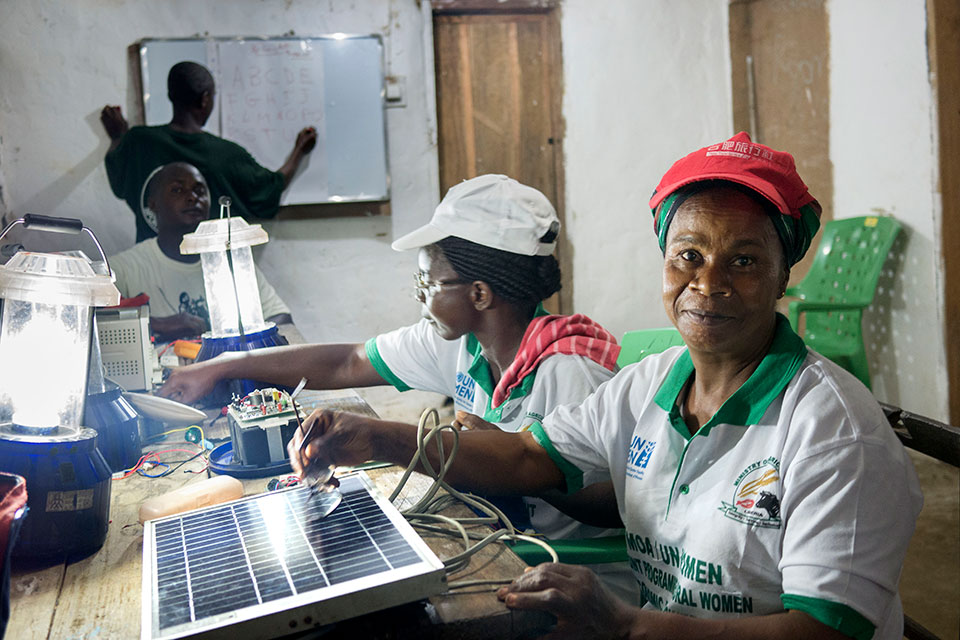
UN Women and Barefoot College in India collaborated on bringing solar electricity to African villages by training rural women to become solar engineers. In 2011, 26 women from 16 villages in Liberia, South Sudan, Tanzania, and Uganda were selected to participate in six months of training on building, installing and maintaining solar lamps and panels.
Pictured at work in Juah Town, Grand Bassa County, Liberia in 2015, 57-year-old Musu Junius and 49-year-old Marie Weeks, are trained solar engineers who have brought solar panels and lamps to their community.
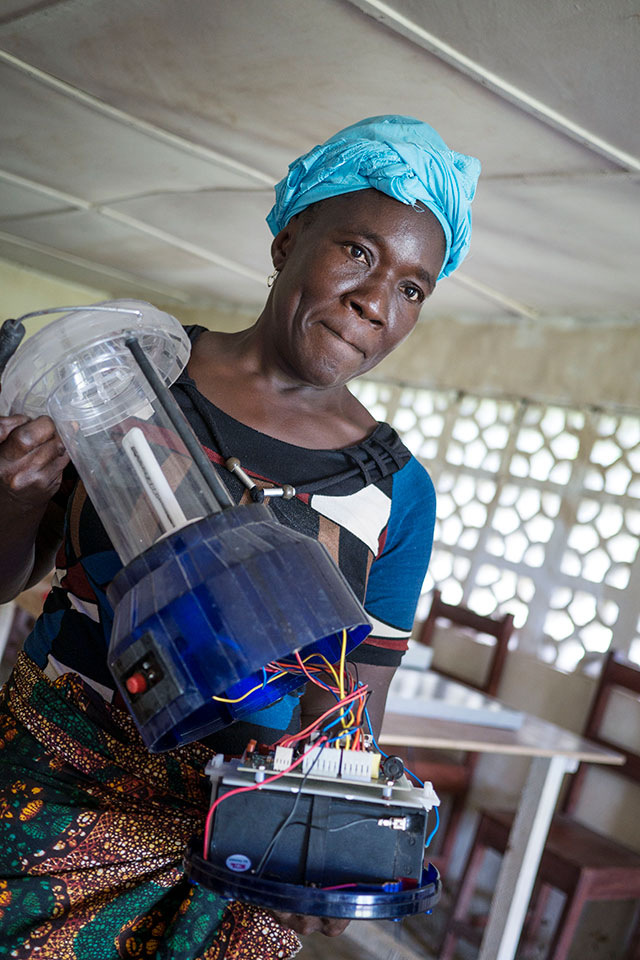
Bendu Sackie, a 55-year-old solar engineer displays the circuit board of a solar lantern that she assembled. Women like Sackie and the others depicted here are promoting use of sustainable energy that also provides alternative livelihoods for many.
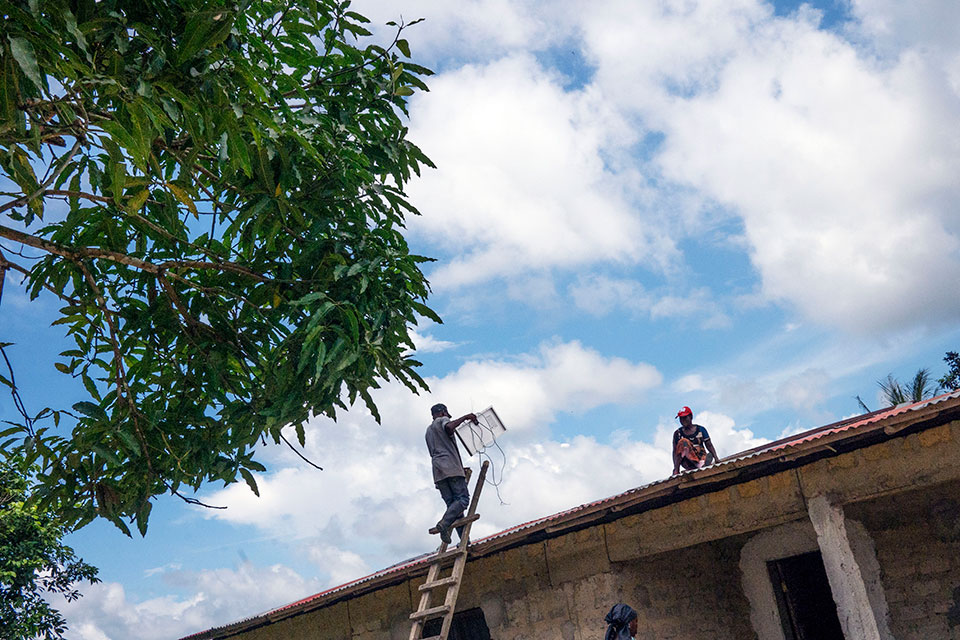
In Liberia, solar engineers install a solar panel on the roof of a village house, bringing electricity to this home for the first time. Most villages lacked electricity, resulting in widespread use of kerosene fuel, which is neither cheap nor healthy for humans and the environment. Solar energy is providing an affordable and sustainable alternative.
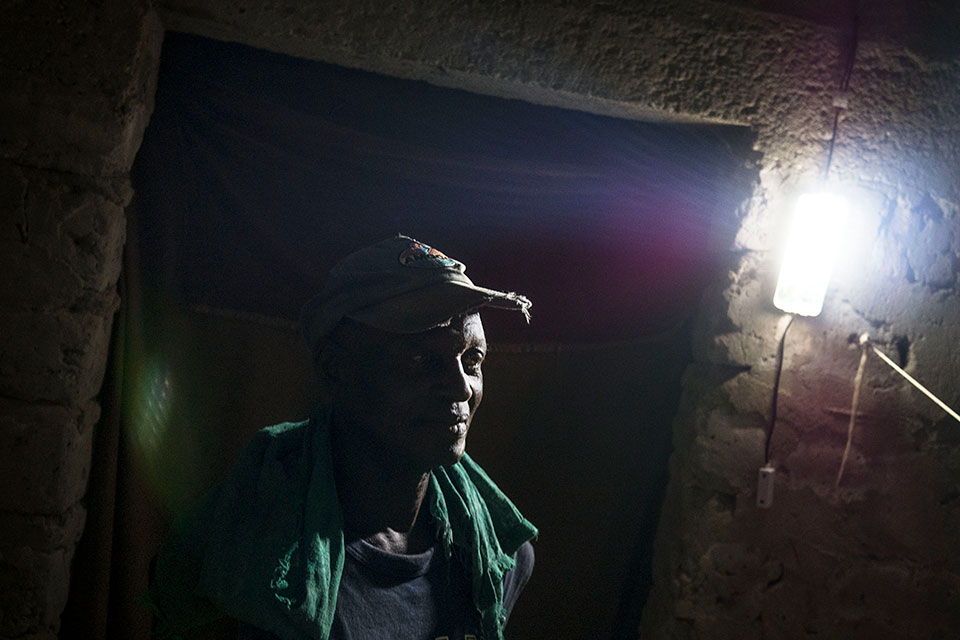
With the installation of solar panels and lights in his home, 57-year-old Anthony Sorbor of Todee Community has electricity for the first time and no longer worries about finding money to buy candles or kerosene. The cheaper and sustainable solar lamps allow Anthony and his family to do evening chores and his children to study after dark.
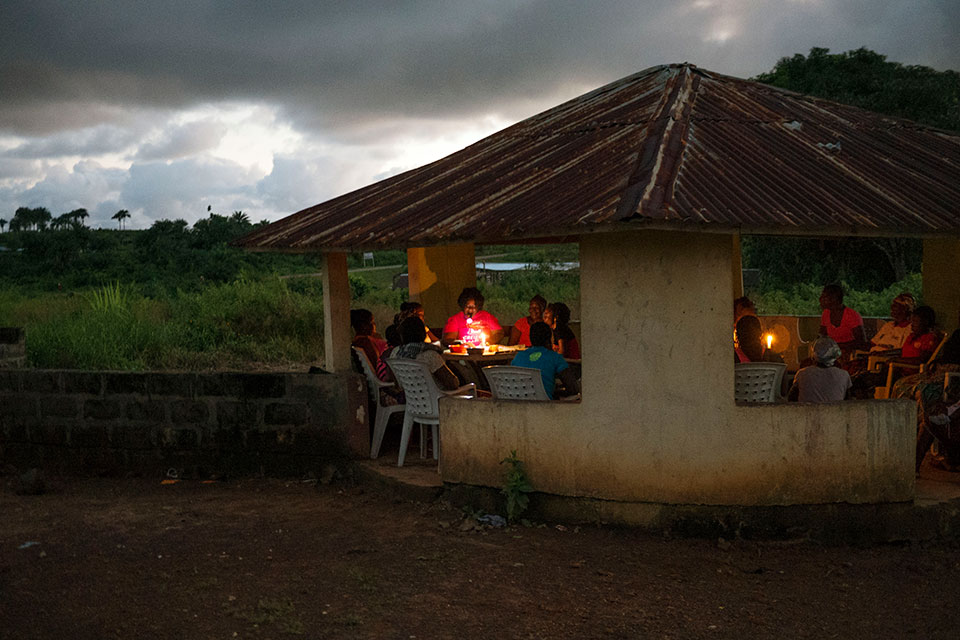
Women gather in a “Peace Hut” in Margibi County. Spread across the country, long-affected by the deadly civil war, the Peace Huts are safe spaces where women come together to discuss and resolve community disputes. UN Women is supporting more than 16 Peace Huts across the country. At the Peace Huts, women mediate problems, run projects and businesses, and advocate for women’s rights. With solar lamps installed, Peace Huts are more secure at night and can function in the evening hours after the day’s work is completed.
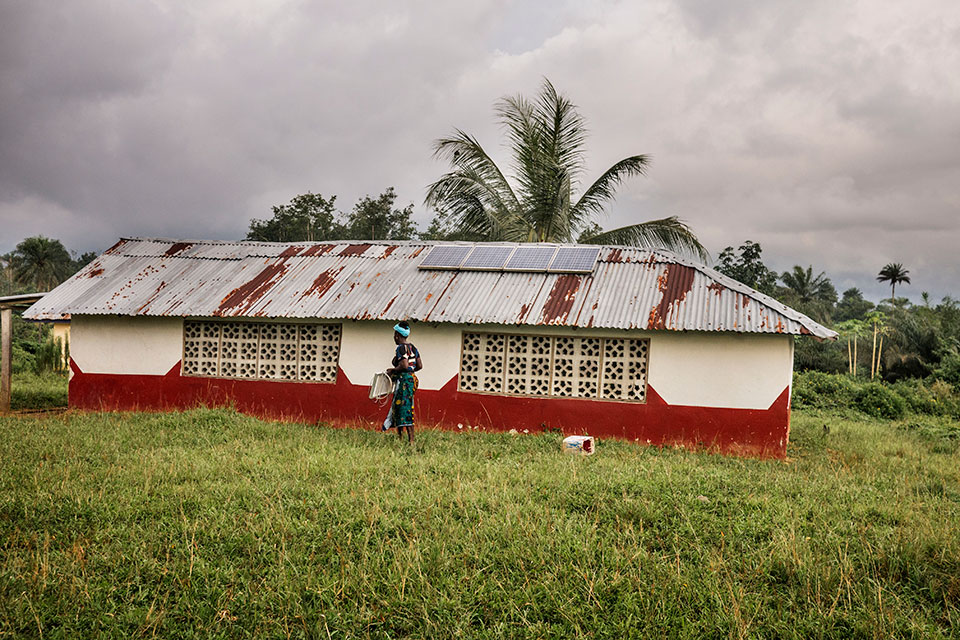
Built with support from UN Women, this Peace Hut in the village of Todee also serves as a workshop space and warehouse for the women solar engineers. Since the Liberian solar engineers returned from their training in 2012, they have electrified over 425 homes and structures in the towns of Salayea in Lofa County, Banbala in Grand Cape Mount County, Juah Town in Grand Bassa County and Bahr Town in Montserrado County.
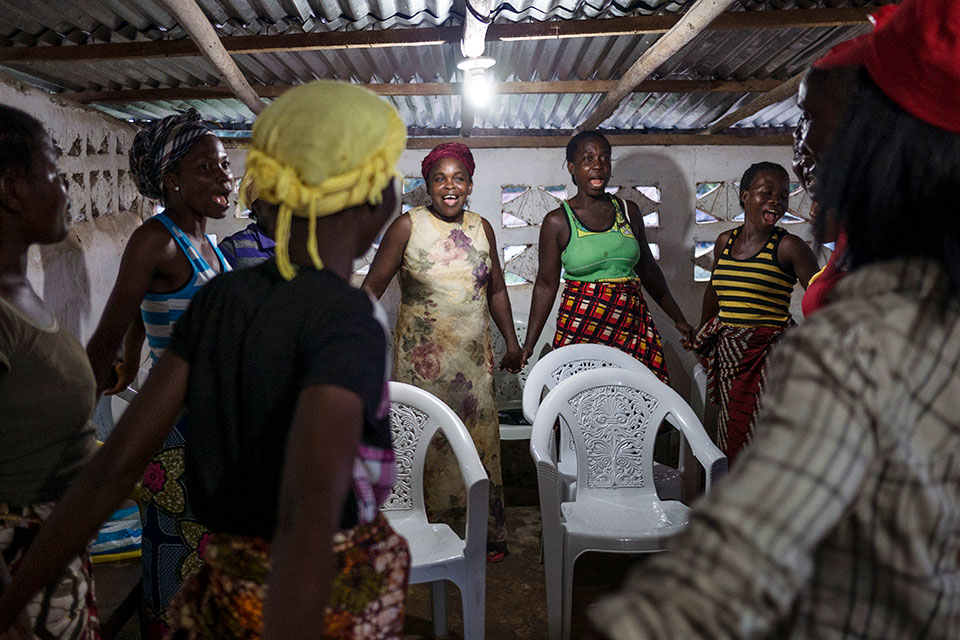
Jubilant women of Juah Town sing during one of their regular adult literacy training sessions held at the Peace Hut. With solar panels installed in the Peace Hut, adult education classes can be run at night, providing more opportunities for local women to attend and acquire basic math and literacy skills.
The recently launched flagship programme initiative on Women’s Entrepreneurship for Sustainable Energy by UN Women and UNEP builds upon experiences such as these and aims to increase women’s entrepreneurship, leadership and access to, and productive use of, sustainable energy. Read more»
All Photos: Thomas Dworzak/Magnum Photos for UN Women